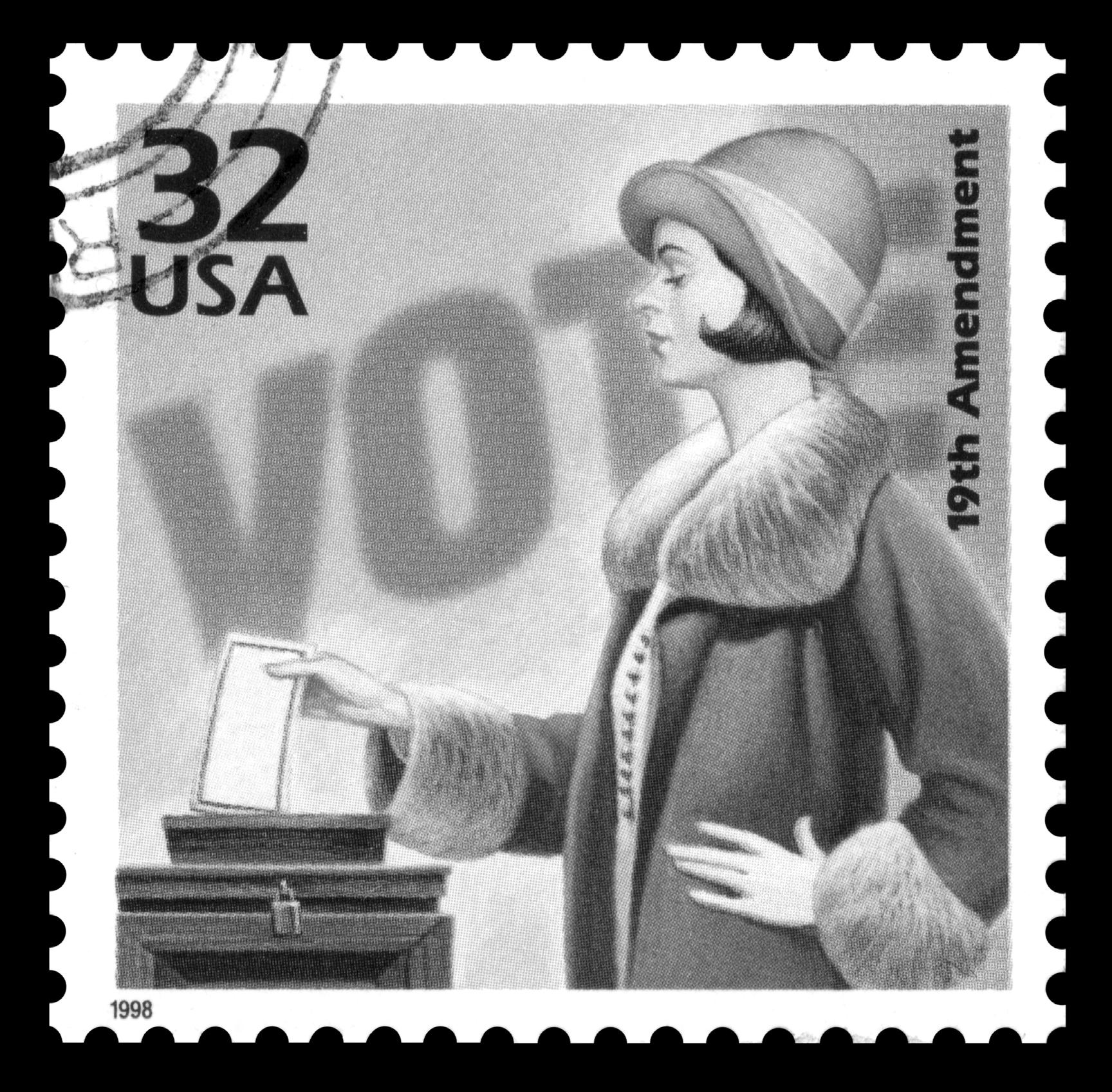

A Safer, Stronger Nashville

Jour JOURNAL Journal

Journal JOURNAL JOURNAL
LAURA BAKER, Publisher
WILLIAM T. RAMSEY, Editor-in-Chief
Journal
CAROLINE E. SAPP, Managing Editor
LAUREN POOLE, Managing Editor
JILL PRESLEY, Layout/Design/Production
EDITORIAL COMMITTEE
KIMBERLY CLARK
EMMA ELLIOTT
TIM ISHII
KELLY FREY
SUMMER MELTON
ROB MARTIN
BRUCE PHILLIPS
BART PICKETT
SYDNEY RAINES
BRANDON SMITH
KRISTIN THOMAS
JONATHAN WARDLE
CRAIG WEBB
ELEANOR WETZEL
NASHVILLE BAR JOURNAL (ISSN1548-7113) (USPS 021-962) is published bi-monthly by the Nashville Bar Association, 150 4th Ave N, Ste 1050, Nashville, TN 37219. Periodicals Postage Paid at Nashville TN.
POSTMASTER: Send address changes to Nashville Bar Journal, 150 4th Ave N, Ste 1050, Nashville, TN 37219-2419.
No part of this publication may be reprinted without written permission of the Nashville Bar Journal Editorial Committee. All articles, letters, and editorials contained in this publication represent the views of the authors and do not necessarily reflect the opinions of the Nashville Bar Association. For more information, visit NashvilleBar.org/NashvilleBarJournal.
The Nashville Bar Journal welcomes discourse. You may submit counterpoint editorials to Jill.Presley@ nashvillebar.org to be considered by the editorial committee for publication in a future print or online content.
NASHVILLE BAR ASSOCIATION
150 4th Ave N, Ste 1050 Nashville, TN 37219 615-242-9272 | NashvilleBar.org
The Nashville Bar Association, established in 1831, is a professional organization serving the legal community of Nashville, Tennessee. Our mission is to improve the practice of law through education, service, and fellowship The NBA—with 2,500+ members—is the largest metropolitan bar association in Tennessee.
FROM THE PRESIDENT
Resilience | Laura Baker
One hundred years ago, the 19th Amendment was ratified guaranteeing women the right to vote. The women’s suffrage movement was a decades-long fight during which suffragists worked tirelessly to overcome steep obstacles. In the years before the crucial vote was cast in Nashville, suffragists feared the momentum of the campaign would be derailed by a worldwide influenza pandemic. Large meetings and public gatherings were banned, and suffragists were forced to strategize new ways to advance the cause. Their perseverance paid off when, on August 18, 1920, Tennessee became the 36th state vote for ratification. The story of the suffrage movement is a story of resilience – the ability to roll with the punches and come out as strong as before, if not stronger.
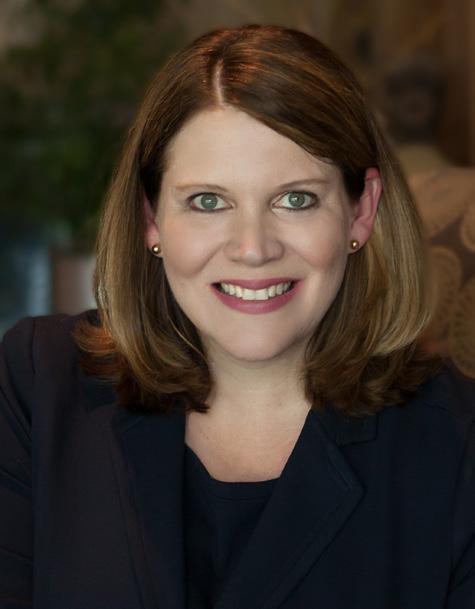
As we face the current global pandemic, and we long for things to go back to normal, building resilience is more important than ever. Resilience doesn’t mean that you won’t experience difficulties in life; instead, resilience is the ability to adapt, survive, and come back from adversity.
Research shows that building resilience involves cultivating social connections and avoiding social isolation. With social distancing, we are challenged to connect in meaningful ways that do not involve face-to-face contact. In my own life, I have experienced meaningful connections through drive-by birthday parades for my daughter’s classmates, Zoom get-togethers with friends and colleagues, and sending and receiving old-fashioned snail mail letters. My daughter even received a chain letter from a friend asking her to send stickers with the promise of receiving six packs of stickers in return!
Self-care builds resilience, and involves taking care of your mental, emotional, and physical health. Working from home presents challenges for work-life balance when your kitchen table becomes your desk and you are doubling as your child’s new schoolteacher. Getting up and moving around, enjoying fresh air, and decompressing is essential to wellness. Increasing attention and focus – tuning out irrelevant information and directing your energy to the task at hand – builds resilience. It is more important than ever to unplug from the 24-hour news cycle, Zoom meetings, and checking phones in favor of talking walks, listening to music, and reading (actual books!).
Cultivating a sense of meaning in life helps you overcome adversity. Whether it is grocery shopping for an elderly neighbor, volunteering at a pro bono legal clinic, or helping a colleague with a technology issue, helping is both a way to connect and a way to add meaning to life by empowering you to grow more resilient.
Resilient people have a growth mindset and prioritize learning from challenges rather than fixating on the status quo. The legal profession is showing resilience in this pandemic by adjusting court procedures and adopting the use of technology to keep cases moving forward.
A hundred years ago resilient women made history despite overwhelming adversity. The story of woman suffrage provides hope that our resilience will lead to important change. Let’s not forget the Roaring Twenties followed the 1918 influenza pandemic. And as our feature article promises: well-behaved women seldom make history.

Calendar of Events
JUNE 2020
JULY 2020
Hear Ye, Hear Ye |
Journal
2020 NBA BOARD OF DIRECTORS
LAURA BAKER, President
MICHAEL ABELOW, President-Elect
Journal
BRANT PHILLIPS, First Vice President
TRACY KANE, Second Vice President
BART PICKETT, Secretary
JEFF ALLEN, Treasurer
JUSTIN CAMPBELL, Assistant Treasurer
GILBERT SCHUETTE, YLD President
LELA HOLLABAUGH, General Counsel
LAURA SMITH, Immediate Past President
LYNNE INGRAM, First Vice President-Elect
DANIEL BEREXA, Second Vice President-Elect
HON. MELISSA BLACKBURN
BRIGID CARPENTER
RAQUEL L. EVE OLUYEMO
LORA BARKENBUS FOX
MARY TAYLOR GALLAGHER
JEFF GIBSON
WILLIAM “PAZ” HAYNES
MARTESHA JOHNSON
HON. ELLEN HOBBS LYLE
MARLENE ESKIND MOSES
JUNAID ODUBEKO
LIZ SITGREAVES
ERIC SMITH
DARKENYA WALLER
LUTHER WRIGHT, JR.
HON. BILL YOUNG
GULAM ZADE
STEPHEN ZRALEK
NBA TEAM
MONICA MACKIE, Executive Director
SHIRLEY CLAY, Finance Coordinator
CAMERON GEARLDS, CLE Coordinator
TRACI HOLLANDSWORTH, Programs & Events Coordinator
JILL PRESLEY, Marketing & Communications Director
VICKI SHOULDERS, Membership Coordinator, Office Manager
HAVE AN IDEA FOR AN ARTICLE?
We want to hear about the topics and issues you think should be covered in the journal. Send your ideas to Jill.Presley@nashvillebar.org

Celebrating 100 Years of Woman Suffrage
The annual Law Day lunch has been rescheduled to Thursday, August 13, from 1:00pm to 4:30pm, and will be combined with a very special event—100 Years of Woman Suffrage: Honoring the Past, Looking to the Future—to celebrate the 100th anniversary of the 19th Amendment.
This program will be held in the House Chamber of the Tennessee State Capitol where the pivotal vote was cast giving women the right to vote. The event will include a two-hour CLE program—including a keynote address given by Justice Anita Earls of the North Carolina Supreme Court—and panel discussions exploring Nashville’s critical role in the suffrage movement and the impact on other voter rights movements that have followed. Stay up-to-date on the latest at NashvilleBar.org/Suffrage n
2020 Leadership Forum Graduation
The Nashville Bar Foundation Leadership Forum is a leadership program for lawyers with three to eight years of experience, designed to bring together emerging leaders who participate in workshops to help them realize their potential and to benefit the legal profession.
Graduation for the Class of 2020 has been postponed due to COVID-19 and the social distancing guidelines set forth by the city of Nashville. Congratulations to everyone on your hard work! n
Macy Amos
Josh Arters
Maria Campbell
Tim Capria
Ryan Davis
Scott Douglass
Meredith Eason
Kevin Elkins
Grace Fox
Andrea Freeman
Victoria Gentry
Laura Heiman
Emily Herbert
William Howell
Brian Irving
Ariel Kelly
Kristen Kyle-Castelli
Jae Lim
Ryan Loofbourrow
Thomas McFarland
Nathan Sanders
Grace Stranch
Jimmie Strong
Michael Wennerlund
WE’VE GOT YOU COVERED! Visit NashvilleBar.org/CLE for the latest.
2020 LIVE SEMINARS
Due to health and safety concerns of participants and staff surrounding COVID-19, we have postponed all scheduled in-person CLEs. We will continue to provide you with updates as we have them. Thank you for your patience during these uncertain times.
JUNE 2020 LIVE ZOOM SEMINARS
Lunch with the Judges Series
June 11 | 12:00-1:00pm
Judge Monte Watkins, Criminal Court Division V
Whose Got the Time?
June 17 | 12:00-1:00pm
Michael Colavecchio, Colavecchio & Colavecchio Law
Jeff Holleran, Davidson County Sherriff’s Office
Candace Whisman, TN Department of Corrections
All the President’s Papers: Trump’s Taxes, Subpoenas, & Separation of Powers in the Supreme Court
July 14 | 12:00-1:00pm Gary Shockley, Baker Donelson
DISTANCE CREDITS WITH SEMINAR WEB

Check out our new and improved digital CLE platform with online seminars available at NashvilleBar.org/DistanceLearning! Choose from the following relevant and focused topics:
Accounting for Nonprofits | Block Chain
Client Privilege | Corporate | Depositions
Elder Law | Ethics | Family Law | Federal Practice
Government | Guardian Ad Litem | History
Immigration Law | Probate | Real Estate
Solo & Small Firm | Technology | Trial Practice | Wills

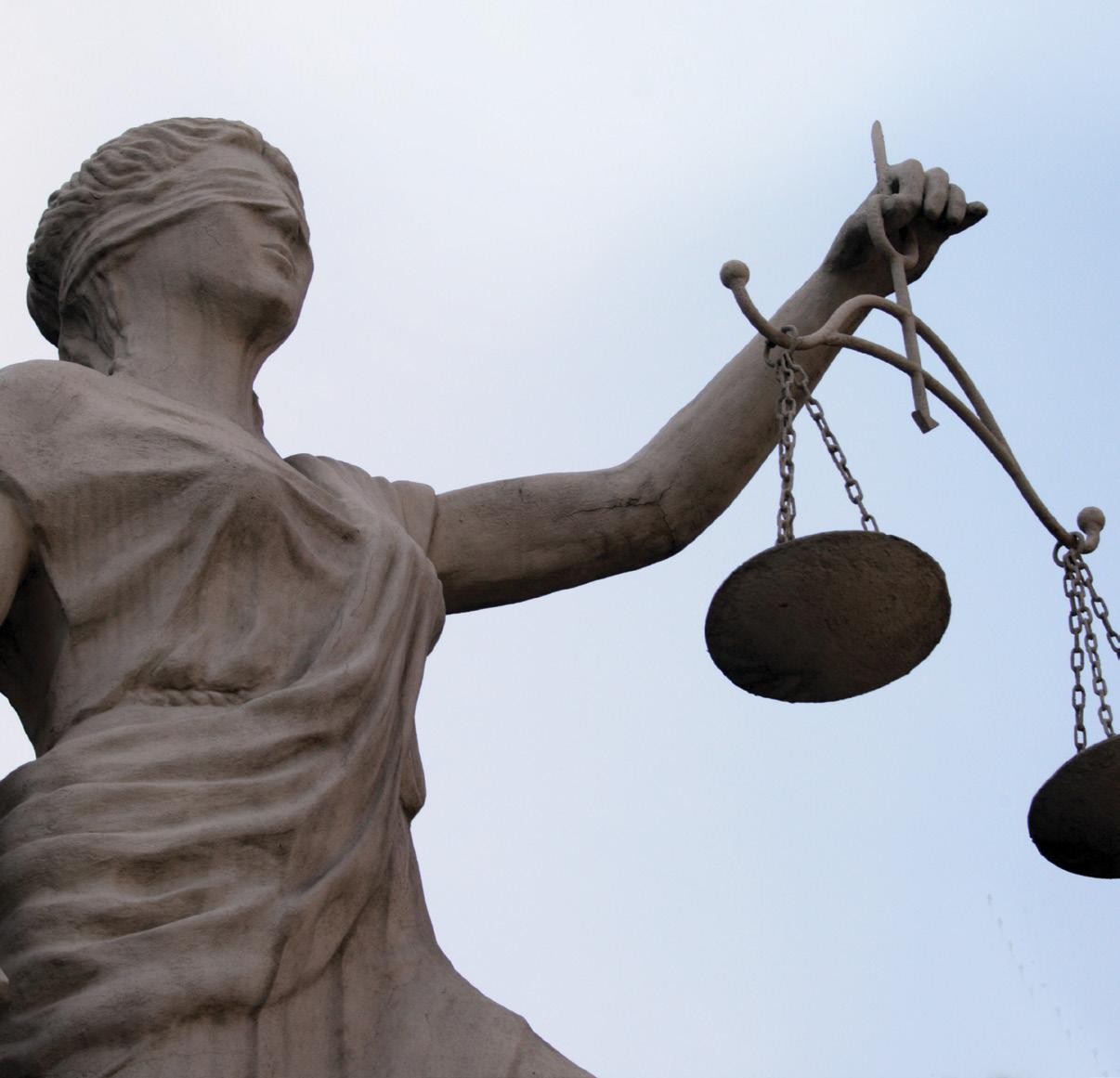
Feature Story
| Margaret Behm & Judge

Well-Behaved Women Seldom Make History
A Conversation about Suffrage with the Honorable Martha Craig “Cissy” Daughtrey
MARGARET BEHM: As someone who has made history over and over again, what does “Well-Behaved Women Seldom Make History” mean to you?
JUDGE CISSY DAUGHTERY: In a sense, I take this phrase completely at face value. For so long it was true that a woman had to break the mold in a million pieces to get in the history books. I have this phrase on a bumper sticker on the refrigerator at my office. It reminds me that occasionally I need to, for whatever reason, stick my neck out. That happens to be something I’ve never been terribly shy about.
MB: The history of the fight to pass the 19th Amendment is often left out of the history books or given a passing reference. How and when did you become interested in this topic?
JCD: I was teaching at Vanderbilt Law School and started considering the idea of teaching a course on women in the law. I knew it would be risky, because the subject would be off the mainstream of what was taught at the law school. The other problem was I didn’t know much about the subject matter! But the few women law students were pushing for a seminar. That’s when I plowed into the subject, and I’ve never looked back. I think if I was still in the academy rather than on the bench, this is where I would have gone with my scholarship and teaching.
MB: What is it about the battle to get votes for women that resonates with you?
JCD: There are two things: One is how important woman suffrage is to history, and the other is how important woman suffrage is to me personally.
The main thing about the 19th Amendment that appeals to me is how long it took to get the vote, and the sacrifices the women in the movement made.
Most people trace woman suffrage to the 1848 Seneca Falls Convention. Equal suffrage turned out to be controversial at the convention but ultimately made it into the Declaration of Sentiments. It took 72 years and many sacrifices between 1848 and 1920 to get the vote. Think of all the women traveling all over the country trying to achieve the right to vote for women, starting with local elections. There were many failures and few victories, like a woman elected to the school board in Omaha. It was a long, hard slog. But it wasn’t just wear and tear on the women and their families. In the end, there was torture and force-feeding of suffragists in prison. That’s what it took to finally push the men in Congress to pass the 19th Amendment and send it to the states for ratification.
The other thing that appeals to me is the whole story of Harry Burn. I love to tell young people the story about him changing his vote at the last minute because his mother wrote him a letter and said be a good boy and vote for ratification.
(continued on page 8)
Feature Story | Well-Behaved Women Seldom Make History
(continued from page 7)
He was very young at the time, so he was not too much more than a boy. But the whole moral of the story is that if you’re apathetic because you think one person can’t make a difference, you are wrong. To me this is the most dramatic “one person can make a difference” story that’s ever been told. With that one vote he enfranchised— at least theoretically—26 million women in this country. We know, of course, that 6 million African American women in the South didn’t get to vote for a long time, but there were 20 million women in the country who suddenly had this right, a circumstance that rose and fell on Harry Burn’s vote that morning in August 1920 in Nashville, Tennessee.
MB: You have over 200 books in your chambers about women’s equality. Tell us about your collection of feminist literature.
JCD: I started collecting books when the second wave of the women’s
movement came into existence. I was on the law faculty from 1971 to 1975. These were heady times for the women’s movement and its intellectual development. Women everywhere were writing articles and books were coming out in numbers that none of us had ever seen before. As you know for having seen them, most came out in paperback because the publishers were leery about printing hardbacks when they didn’t know whether the books would sell.
I have most of what was published from that early period. One of the things that has kept me from retiring was the fact that I didn’t know what would happen to the book collection. My thought was that all the paperback books would end up in a shredding machine, once I let go of them. And I wanted these books to be kept together and—I hope—prove useful in the future. Now, I have found a place for them! My collection has been accepted for the Votes for Women Room
Valuation, litigation, forensic and mediation support services require an independent and objective assessment. Price CPAs has assisted in cases involving these services.
THESE SERVICES INCLUDE:
• Minority shareholder disputes
• Valuations
• Wrongful Death/Personal Injury
• Divorce (equitable distribution)
• Commingling & Transmutation
• Business damage assessment and determination
• Solvency analysis and fraudulent conveyance
• Litigation consulting services.
THESE SERVICES ARE LED BY THE FOLLOWING PROFESSIONALS:
• Tom Price, CPA/ABV/CFF, CVA
• Alan Webb, CPA
• Mark Fly, CPA, ABV
• Scott Farrell, CPA
• Gary Pounders, CPA, CFE
at the Nashville Library.
MB: Tell me about a couple of your favorite books about the women’s movement.
JCD: Century of Struggle , written by Eleanor Flexner, was so eye-opening and an education all in itself. It’s the book I’ve bought and given to people over the years. It’s still in print.
The Southern Lady written by another historian, Anne Firor Scott, just knocked me out because it has so much to do with how girls in the South were raised and brainwashed. It was so exciting to find out there were women in the South who absolutely broke the mold. They were anti-slavery and pro-suffrage and definitely not “well-behaved.”
I came from a family that was very conservative. In fact, my family history indicates that my grandmother, who was born in Williamson County just before 1890, married about 20 years later and was an anti-suffragist. One regret I have is that I never had the chance to ask her about it. I do know that she relented at some point and went to the polls on election days.
MB: You also own a rare collection of the four volumes of History of Woman Suffrage , autographed by co-author Susan B. Anthony, with a different inscription about suffrage for each volume. How did you acquire these books, and what do they signify?
JCD: I found out that they existed back when I was teaching the seminar on
(continued on page 12)

Connecting Talent with Opportunity
NBA Career Center
Whether you’re a Job Seeker searching for Career Resources or an Employer looking to Search Resumes for your next all-star team member, the NBA Career Center has everything you need!
EMPLOYERS
• Post your job in front of the most qualified group of legal professionals in the industry.
• Promote your jobs directly to candidates via the exclusive Job Flash email.
• Search the anonymous resume database to find qualified candidates.
• Manage your posted jobs and applicant activity easily on this user-friendly site.
JOB SEEKERS
• Search and apply to more legal jobs than in any other job bank.

• Upload your anonymous resume and allow employers to contact you through our Career Center’s messaging system.
• Access career resources and job searching tips and tools.
• Have your resume critiqued by a resume expert.
ABOUT THE NASHVILLE BAR ASSOCIATION
The Nashville Bar Association, established in 1831, is a professional organization serving the legal community of Nashville, Tennessee. The NBA—with over 2,600 members—is the largest metropolitan bar association in Tennessee.

Be the first person to email the correct answer to Jill.Presley@nashvillebar.org, and your name—along with the correct answer—will appear in the next issue.
APR/MAY GOLDEN OLDIES
Blame the quarantine, but no one identified the individuals in last issue’s photo. From left to right: Sandy Braber-Grove, Justin Adams, and Bernadette Welch.



Mike Abelow
Chris Barrett
Mollie Bauer
Justin Campbell
Whitney Dowdy
Andrew Hermandorfer
Tracy Kane
David Marshburn
Bill Norton
Mary Price
Chris Rubino
Gary Shockley
Mary Wu Tullus
Sean Wlodarczyk
BACKGROUND CHECK
Juliet Griffin | Mary E. Walker
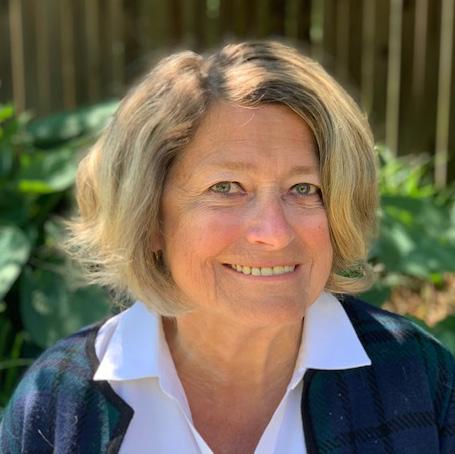
This issue of the Nashville Bar Journal celebrates the 100th year since the 19th Amendment granted women the right to vote. This was one step in creating a climate that encouraged girls and women to believe their role in society was important and that anything was possible. Juliet’s story is one of many that document the truth of opportunity, hard work, and the importance of collegiality.
As reported in the Nashville Banner on December 5, 1986, the announcement by outgoing Nashville Bar Association President Lew Conner of Juliet Griffin’s election as the first woman NBA President, “touched off an exultant shout from the crowd of more than 500 members who attended the annual association banquet.” Lew Conner led up to his announcement saying “. . . in the last 156 years of its [NBA] existence, every president has been addressed as ‘Mister.’ That will not be the case in 1987.” In a subsequent article, he says, “Juliet Griffin is the president of the NBA for one reason and one reason only— she’s the most qualified person.”
That being said, and although undeniably true, this was 1986, and the idea of a woman president of the 1,700 member NBA was not a given. In fact, in the 10 years prior to 1986, 23 women
were nominated to the 18-member NBA Board with only 8 elected. Until 1986, there was no more than one woman elected in each board class when Chris Norris and Ruth Kinnard broke that record.
In addition to Juliet, there were two other women serving on the board in 1986—Aleta Trauger and Jean Nelson. In order to elect a woman, a different strategy from the past board elections was critical. Margaret Behm (former NBA Board member), Lew Conner, and Juliet—who agreed with some trepidation, to put her name forward—met over drinks and developed the strategy. According to Margaret and Juliet, Lew’s support was crucial. Lew, Margaret, and Juliet contacted the board members and built a consensus that Juliet’s unique communication skills, intelligence, and “get it done” reputation made her the right choice to lead the NBA in 1987.
The person elected to serve as president in 1987 was important for two reasons. In 1986, the board created the position of NBA Executive Director, and the new president was central to defining that role and the reorganization of the NBA. Additionally, the Tennessee Supreme Court mandated 12 hours of CLE, which presented an opportunity for the NBA to expand its membership to include the growing and diverse number of attorneys graduating from law school. The election strategy worked. As predicted, Juliet was perfect for the job.
Juliet recently commented, “I felt no resistance from the NBA and was fully supported as I worked with the bar and board to meet the challenges. I am especially proud that my election paved the way for more women to be elected as future NBA board members and
presidents.”
In January 1995, Juliet continued with her record of firsts when she was sworn in as the first woman US Magistrate judge in Tennessee—this was especially meaningful as this occurred in the 75th year after Tennessee provided the necessary vote to ratify the 19th Amendment. Juliet’s legal accomplishments were foreshadowed by her community involvement as a charter member of the Tennessee State Employees Association when she was employed as a public welfare worker, and later, when she played a key role in opening up the downtown YMCA to women.
Juliet grew up in Nashville, and graduated from Oberlin College in Ohio and the University of Tennessee Law School, where she was the editor-inchief of the Law Review and Order of the Coif. Juliet later clerked for US District Judge Thomas A. Wiseman, Jr., as well as worked at Legal Services of Middle Tennessee. At Legal Services, Juliet practiced family law for five years and made a difference for clients struggling with poverty and their accompanying legal issues. In 1985, Juliet became Clerk of the US District Court where she stayed until she was appointed a Magistrate Judge, a position she held until she retired in 2015. n

MARY E. WALKER is a retired attorney and social worker. She currently serves on the Renewal House Board, A Step Ahead Foundation, and is a tutor for Project Transformation. Mary was previously an attorney with Legal Services of Middle TN, an Assistant Attorney General, part of the Vanderbilt Legal Clinic faculty, and more. She also served on the NBA Board of Directors, is past president of the LAW, and served on various community nonprofit boards. She is a graduate of University of Tennessee.
Editorial | Well-Behaved Women Seldom Make History
(continued from page 8)
women in the law at Vanderbilt. The first set I had included reproductions of all six volumes. However, Susan B. Anthony died in 1906, and it took another 14 years to finish the deal, so to speak. After the amendment was ratified, some of her colleagues finished the last two volumes. I later found out that the first edition of the first four volumes, signed by Susan B. Anthony before her death, were available through an autograph dealer in New York City, who used to run ads on the back page of the New York Times Book Review every Sunday. I could not get on the phone fast enough. I think he wanted $375 for the books, which wasn’t even $100 a volume. I sold the six-volume reproduction set for about that same amount of money and bought the real thing. I have cherished them, of course, ever since, and they are in my office. When new law clerks come in, one of the first things we do is take the newbies into chambers to see the books. I tell them that, in the event of an emergency, if there’s a dog around, save the dog first, but the next most important thing is that four-volume set of books! They are simply splendid!
MB: Speaking of dogs, you have named your dogs after suffragists! Which names did you choose and why?
JCD: I always have believed in giving dogs proper names, but my friend Mary Schaffner came up with the first suffrage name. I told her I was going to name my new puppy “Cornelia,” and Mary said, “You can call her Cornelia, but I’m going to call her Alice Paul.” So, I named my dog Al -
ice Paul. After Alice, I had Susan B., or “Susie.” Then, there was Elizabeth Cady Stanton, called “Lizzie.” I even had a boy dog named for Harry Burn at one point. Currently, I have “Annie,” named for local suffragist Anne Dallas Dudley.
MB: What is your view about the progress of women’s equality over the past 100 years? Where do you see women’s fight for equality in the future?
JCD: I’ve lived long enough to see a lot of change; no question about that. But there is, I think—most people think—a way yet to go. When the movement came back to life 50 years ago, women were making 59 cents to every dollar that a man made, and we still haven’t narrowed that gap completely. But I think we will continue to make progress. I wish we could get the ERA passed, and there is a renewed effort to see that done, which pleases me since I was right in the middle of it back in the day. n

HON. MARTHA CRAIG
“CISSY” DAUGHTREY is a Senior Judge of the US Court of Appeals for the Sixth Circuit. Her career reflects a series of “firsts,” including being the first woman to sit on a Tennessee court of record and serving as the first woman justice of the Tennessee Supreme Court.

MARGARET BEHM is a trailblazer who started Nashville’s first all-woman law firm. A partner at Dodson, Parker, Behm & Capparella, she has spent her career working to break the glass ceiling and create opportunities for other women to do the same.
LET’S WORK TOGETHER TO PROTECT YOUR CLIENTS’ INTELLECTUAL PROPERTY.
We are committed to protecting your clients’ IP assets, leaving you to focus on all other legal matters. Learn more at iplawgroup.com.

What Message Would Your Carrier Pigeon Send?
This year marks the 100th anniversary of women being granted the constitutional right to vote through the passage of the 19th Amendment. The journey to suffrage was a long-fought battle by hundreds, if not thousands, of strong-willed women. We know the stories of the prominent trailblazers of the Suffrage Movement like Elizabeth Cady Stanton and Lucretia Mott forming the Seneca Convention; Susan B. Anthony who traveled the country to deliver suffragist speeches; and Sojourner Truth, a former slave who became an advocate for the women’s rights movement. However, not as many know the story of Alice Stone Blackwell.
Alice Stone Blackwell was born in East Orange, New Jersey, as the only child of Henry Blackwell and Lucy Stone, a preeminent suffragist and abolitionist who formed the first national women’s rights convention. Blackwell came from a long line of remarkable women—besides her mother, two of her aunts were among the first female physicians in the US, and her other aunt was the very first ordained female minister. Immersed in the feminist movement from childhood, Blackwell graduated from Boston University with honors and thereafter joined the editorial staff of Woman’s Journal, an abolitionist periodical founded by her mother and the official magazine of the American Women Suffrage Association
(AWSA). Blackwell became the chief editor of Woman’s Journal after her mother’s passing in 1893 and retained the title until 1917.
A brilliant thinker and innovator, Blackwell was integral in reconciling the two competing organizations of the women’s suffrage movement—the AWSA and the National Woman Suffrage Association. By merging the two organizations, Blackwell formed the National American Woman Suffrage Association in 1890. She served as the organization’s recording secretary in 1909 and 1910. Blackwell was also the president of the New England and Massachusetts Woman Suffrage associations.
Among her achievements, Blackwell is lesser known for another ingenious endeavor—sending suffragist messages across the country by carrier pigeon. Seven years before the passage of the 19th Amendment on August 9, 1913, the San Francisco Chronicle published an article entitled “Homing Pigeons Carry Suffragette Messages.” The article reported:
The homing pigeons bearing suffragette messages for Miss Alice Stone Blackwell reached Boston from New York this morning. Birds were set free in City Hall Park, New York, yesterday
(continued on page 14)
by four young women campaigners, who are traveling over the road from there, making suffragette speeches en route. The birds are named Henry Blackwell and Lucy Stone…
Upon the 100th anniversary of women gaining the right to vote, it is imperative to take the time to reflect on the great strides our predecessors have made in the journey to true equality. However, the best way we can honor our predecessors is to continue pursuing their enterprise. While we have certainly come a long way, we have yet to achieve true parity for women. Women comprise a mere 5% of Fortune 500 CEOs. Furthermore, even though women make up half of the workforce in the US, women comprise only 27% of the top 10% of earners, and the inequities between women and men are even steeper for women of color. White women make 81.5 cents on the dollar compared to their male counterparts, yet black women and Hispanic women make 65.3 cents and 61.6 cents on the dollar, respectively. Perhaps even more difficult to reconcile
is the persistent bias women face in the workforce. A study released by the United Nations Development Program revealed that close to 90% of men and women hold some sort of bias against women. On the global scale, women in some countries are still not afforded the basic rights that our predecessors fought to achieve 100 years ago.
As Alice Stone Blackwell’s mother, Lucy Stone, said, “Now all we need is to continue to speak the truth fearlessly, and we shall add to our number those who will turn the scale to the side of equal and full justice in all things.” So, in the spirit of Alice Stone Blackwell, I ask you: What message would your carrier pigeon send? n

TABITHA ROBINSON is a staff attorney for Nashville Electric Service. She is cochair of the High School Intern Program for the NBA Diversity Committee and co-chair of the NBA Sister Cities Committee. She is also a board member for Lawyer’s Association for Women, Women’s Political Collaborative of TN, Sister Cities of Nashville, and on the advisory council for W.O. Smith Music School. Tabitha is a graduate of the University of Tennessee College of Law.




More Screens Please! | Bill Ramsey & Phillip Hampton

The latest craze in laptops is dual screen displays. We saw many of these new form factors in the coming attractions at CES—some with two screens connected by a hinge, and some with a flexible screen that could be folded in half. We have seen the future, and the future is two or more screens on your laptop. We have also seen that this future is not going to be cheap. Nonetheless, you don’t have to wait until these expensive new laptops hit the market to join the multi-screen craze. And you don’t have to break the bank either.
We found an add-on second screen option that can be paired with just about any laptop called Mobile Pixels Duex. The 12.5-inch second screen is just $250 and is very easy to “install” on your existing laptop. We bought one and used it with a Surface Laptop. The Mobile Pixels Duex is almost a half-inch thick and weighs 1.7 pounds—it can be attached to the back of your laptop screen with the included magnetic metal plates. It connects and receives power via a USB cable that you plug into the host laptop. Basically, we just plugged it in and it worked—that’s the kind of installation process that we like.
The Mobile Pixels Duex slides out from its protective case (attached to the back of your laptop) and can be rotated
270 degrees. We have used it primarily as a second screen on our laptop. So, now when we’re on the go and sorely miss having a large monitor like we have back at the office, we can just pull out the Mobile Pixels Duex as a second monitor and not feel cramped. We have also found it to be very useful when sharing content from our laptop (spreadsheet, document, or presentation) in a one-onone situation with someone sitting across the table. We simply rotate the Mobile Pixels Duex 180 degrees, and it serves as mirror display for the person sitting across from us.
While the Mobile Pixels Duex is an economical solution to the need for a mobile second screen for our laptop, it is not necessarily the most aesthetically pleasing solution. The second screen does add some thickness and weight to the laptop when attached. The USB cable also tends to get in the way when rotating the screen around. When we are not using the second screen, it is easy to detach from the laptop, because it is held in place by magnetic metal plates which you affix to the back of your laptop display. These metal plates don’t particularly bother us, but they do look sort of out of place when the Mobile Pixels Duex is not attached. However, for the relatively low cost, we can overlook these minor inconveniences in order to add a sexy, trendy second screen to our old hardware.
There are other similar solutions, but they are more bulky, such as the Asus ZenScreen touch ($339), the AOC USB Monitor ($150), the Lenovo ThinkVision M14 ($250), the Asus Zen Screen Go (a more portable monitor at $250), and the HP EliteDisplay (even more portable at $220). The problem is, however, these are all separate monitors and add a lot more bulk. A competitor to the Pixels
Deux is the SideTrak Portable Monitor ($300), but the display is dim and the mechanism is clunky.
Bill thinks he has the best solution for those who carry a laptop and an iPad. You can turn an iPad into a second screen with a cable and an app called Duet Display ($9.99 for a version that requires a cable attached to the computer; the wireless version costs $19.99 per year). Uncharacteristically, Bill chose the cheaper, wired one.
With Duet Display, you install the app on your iPad, attach the iPad to your laptop via a USB cable, and install a free app on your laptop. Magically, the iPad turns into a second display for your laptop. If you have the larger iPad with the 12.9-inch display, it almost matches the display on a laptop with a 13-inch display. Duet Display allows you to use the touchscreen capabilities of the iPad with zero lag in the movement from the laptop display. Sweet!
Finally, if you have a MacBook, there is a built-in app called Sidecar. It works great. You can use the iPad as a touchscreen for your Mac, even though (for some reason) no MacBooks have a touchscreen. n
Mas segundas pantallas por favor,

TENNESSEE CHAPTER





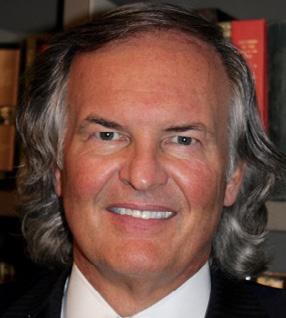


Gayle MALONE, Jr. (615) 651-6700


Dan NOLAN (931) 647-1501

Matt SWEENEY (615) 726-5774
John TARPLEY (615) 259-1366 Mark TRAVIS (931) 252-9123 Jack WADDEY, Jr. (615) 850-8752 David NOBLIT (423) 265-0214 Barry L. HOWARD (615) 256-1125
Gail ASHWORTH (615) 254-1877 John BLANKENSHIP (615) 627-9390 Paul DeHOFF (615) 631-9729 James KAY (615) 742-4800


RUSSELL (615) 815-0472 Mark LeVAN (615) 843-0308
Tracy SHAW (615) 921-5204
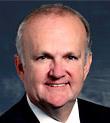



A Journey with COVID-19
I am writing this to you on April 26, 2020, which marks day 45 of quarantine for which I have stayed at home and social distanced. As you read this, I hope most—if not all—of us are back in our offices practicing law in a somewhat normal way. June 1 will be the 80th day since I became ill with COVID-19. Who is counting? Every medical professional studying the virus and every person who has and will get the virus.
I had just arrived home on March 10 from traveling to Portland, Seattle, Austin, home briefly, Orlando, Washington DC, and Orlando again, and I was tired. Facing the demands of preparing for a high profile, two-week trial in federal court, I knew it would be a crazy day—and it was. As it progressed, I just didn’t feel right. A bit chilled. Normally, I would chalk it up to fatigue and stress, but the news (and my mom) were talking about COVID-19.
After my plane landed on March 10, I called my mother as I drove home. She was worried because I had been traveling, and in areas already in the news as virus hotspots. I assured her I was fine, and no one was acting afraid or worried in those cities. “If you feel ill at all, you must go to the doctor and get tested,” the retired nurse said. My response? “Maybe.”
When I got home late on the night of the March 11, I took my temperature and it was 100.5. I told my mom, of course, and my husband. I made a few calls to coworkers, ate dinner, and went to bed.
The next day, I called the Vanderbilt walk-in clinic near me, but they asked that I call Vanderbilt’s COVID-19 hotline for screening. The hotline nurse returned my call within an hour and encouraged me to make an appointment with the walk-in clinic that day to be tested. The test itself took less than a minute, but the clinic was overwhelmed with people wanting to be tested, other ill people, and regular preventive medicine appointments. Despite that, every staff member was kind, professional, and using PPE.
On March 13, I didn’t feel too bad as I worked from home. Busy preparing for trial, I took a break for exercise. Exercise always makes me feel better sooner. I ran five and a half miles— my normal—but I was struggling. The run felt harder than usual, but I was still recovering from an ankle injury. I did not attribute the difficulty exercising to COVID-19 until I saw more media reports.
(continued on page 18)
| A Journey with COVID-19 (continued from page 17)
Everyone wants their test results back quickly, no matter what the test. A medical test for a novel Coronavirus? You really want the results. Sunday morning the phone rang and I was told, “You are positive.” My husband was upstairs and not able to hear the conversation, but he knew I was on the phone for a while so the results could not be good. It only takes a couple of seconds to say, “Negative, have a good day.”
My husband moved to another bedroom, I read about the virus, and we talked at length about how our firm would respond to my diagnosis. Of course, the office would be deep cleaned and workat-home protocols which were already being tested would be implemented. I personally communicated with everyone I had been in significant contact with the day I began to feel ill, and some before that date. After much consideration about my personal privacy—and waffling by me— my husband and I decided that everyone in the law firm should know it was me who had tested positive. Knowledge is power. The outpouring of support
was amazing and humbling. Bradley is a wonderful family.
Because I was still in the throes of trial preparation, I also told the opposing lawyer (a longtime friend) of my test results. Trial preparation continued and the calls from the Department of Health began and continued for a week. Since my fever was short lived and my other symptoms resolved quickly, I was released from quarantine well before my husband was released. Fortunately, he did not get the virus, nor did anyone in my family. None of my coworkers with whom I was in contact with tested positive for the virus.
While quarantined, the various COVID-19 orders from the courts began to be issued. Trials were delayed through the end of March, but my trial was in April. To get an extension, Judge Crenshaw’s order said you need to file a motion with enough information to allow him to make an informed decision. Was I going to have to file a motion stating I was COVID-19 positive for all the world to read? The names of lawyers in oth-

er cities who were testing positive were making the national legal press—I did not want that. Fortunately, a call with the assigned district judge resulted in a continuance without a discussion of my health. However, as of today—and despite being recovered and healthy—I am banned from the courthouses absent approval of a judge. I hope that will have changed by the time you read this.
When I was “recovered” but realized this situation would not be better in just a few weeks, I started thinking about ways to help. I went grocery shopping for the elderly—all while maintaining CDC guidelines—and learned about the need for convalescent plasma. I signed up and donated. I never dreamed I would be the first COVID-19 donor at the Nashville Red Cross. The desire to promote the donation and the media coverage caught me by surprise. I hope my plasma and platelets helped others who are ill.
While at first I was hesitant for everyone to know I had tested positive; however, I am now doing my best to embrace it and help ease some of the fears the media and politicians exploit. Just knowing someone who has had the virus and recovered has helped many people I have talked with. Again, we all know knowledge is power. Stay safe and I wish for everyone with COVID-19 a quick and full recovery. This too shall pass. n

LELA HOLLABAUGH is Managing Partner at Bradley’s Nashville office. She is a past president of the NBA and currently serves as the 2020 Annual Campaign Chair for the Legal Aid Society of Middle TN and the Cumberlands. Her practice is complex civil litigation for large corporations with a focus on pharmaceutical, eminent domain, and asbestos litigation.
LEGISLATIVE COLUMN
Capitol Notes | Peggy Sue, the Beagle Hound

Hard Pivot for the 2020 Session
The 111th General Assembly made a hard pivot on Monday, March 16. They deferred all their regularly scheduled business, put the required package of appropriation bills on their calendars, passed them in four days, and recessed until June 1. Now that COVID-19 is here to stay, the leadership of each house is pondering how to conduct a legislative session. Legislation tends to be a high contact sport. Handshakes, hugs, huddles, and a host of other close conversations make it all work. While one may still wink or nod, social distancing does not lend well to a quiet chat. To mask or not to mask becomes an important question. Most dogs believe our humans should mask up. This is particularly true for one who may be infected and contagious, but still showing no symptoms, and that could be anyone with two legs.
The work now turns towards some retooling for the state’s 2019-20 and 2020-21 budgets. With the reporting of March revenues, the 2019-20 budget looks to have a $500 million hole to fill. For such problems, rainy day funds were made. The 2020-21 budget will be harder to patch. Uncertainty always barks in harmony with economic forecasting, but
this year’s uncertainty factor is off the puppy farm. With the state revenue’s twin pillars of sales and business taxes both largely supported by consumption, a one-month forecast is now long term. We do know that tourism is crucial for the state’s budget, and those numbers are going to be pretty skinny until a vaccine is available to help folks get comfortable with travelling again. Adjournment is expected by mid-June.
August Election(s)
August 6 has two elections. The first is the general election for some state and local offices. Davidson County candidates and the positions sought are: Pat Moskal for Chancery Court, Part 1; Jennifer Smith, Criminal Court, Division 4; Erica Gilmore, Trustee; and Vivian Wilhoite, Assessor of Property. Each won her March primary election and has no formal opposition in the August election.
The second election is the primary election for state and federal elected offices. For the state primary election, the entire Davidson County legislative delegation is seeking reelection. Three state house members face token primary opposition: Mike Stewart in District 52, Vince Dixie in District 54, and Darren Jernigan in District 60. In State Senate District 20, two Democrats are vying for the opportunity to face two-term incumbent Steve Dickerson in November: Kimi Abernathy and Heidi Campbell. At the federal level, 15-term incumbent 5th District Congressman Jim Cooper has two opponents in the August primary. They are relatively political unknowns—Keeda Haynes and Joshua Rawlings. Three-term incumbent Senator Lamar Alexander has decided to retire and not seek reelection in 2020.
Both parties have several candidates seeking their nomination in the August primary. The leading contenders are Bill Hagerty and Manny Sethi for the Republicans and James Mackler for the Democrats.
Voting
The General Assembly governs the voting process in Tennessee. While some states have decided to permit any voter to vote by mail in the 2020 election cycle, Tennessee has not. Tennessee has absentee voting by mail and early voting in addition to election day voting. Absentee voting requires a reason such as illness or being outside of the county for the early voting period and election day. Election officials have stated that fear of contracting the virus is not a valid legal reason to vote absentee by mail. Anyone over age 60, however, may vote absentee. The period to request an absentee ballot began on May 8 and runs through July 30—the sooner the better.
Checklist for June & July
1. The deadline to register to vote for the August 6 election is July 7. Register electronically or update your registration at GoVoteTN.com.
2. The early voting period for the August 6 election runs from July 7 to August 1.
3. Thank the folks you see working in your grocery store for their good work in stocking the shelves and checking out your purchases, especially the dog treats.
Calendar Notes
State and NBA staffers will be off on Friday, July 3 for the Independence Day holiday. n
Welcome to the NBA!
Congratulations on your membership—thank you for joining the NBA! We look forward to serving you this year and appreciate your support. Visit NashvilleBar.org or contact Vicki.Shoulders@nashvillebar.org with questions or to learn more.
NEW
MEMBERS
William Dawson Ogletree
Matt Baker
Casey Bloxom
Jonathan Bobbitt
Jack Brown
Katelynne C. Edwards
Alyssa J. Devine
Michael R. Ferrence
Sandy Fletcher
Marcus Floyd
Drew Goddard
Rodney Hanson
Claire Hodge
(MARCH 1 - APRIL 30)
Nancy King
Juliana Lamar
Curt Masker
Lamar Moore
Dawson Ogletree
Kyle Peiter
Carrie Perras
Willie Robinson
Jake Rudy
Carey Turner
Richard Wommack
Lisa Woodruff


Editorial | William J. “Paz” Haynes III

150 Years of Amendment 15: The Continual Struggle for African American Voting
It is oddly fitting that in this uniquely tumultuous election year the US commemorates the 15th anniversary of the ratification of the 15th Amendment to its Constitution. The decade before 1870 saw Civil War, the “emancipation” of enslaved African Americans, and the early phases of a volatile and doomed Reconstruction.
African Americans were fully invested in every aspect of struggle. Approximately 180,000 African Americans served and fought for the Union during the War, which constituted about 20% of the Union Army. In the years following Emancipation and Reconstruction, newly freed African Americans moved swiftly to build businesses, schools, churches, and newspapers. However, their allies and adversaries alike realized that full enfranchisement of American citizenship was impossible without a right to vote.
Even in the Party of Lincoln, Republicans were divided on the question of full voting rights for African Americans. 1 Tennessee moved quickly on the issue. In response to organized demonstrations at the Capitol, the State of Tennessee granted full enfranchisement to African American men in 1867. Fueled by African American turnout at the polls, numerous African
American Tennesseans were elected to office. Other states across the South saw similar exercises of political strength by the newly enfranchised African American vote. In the years following passage of the 15th Amendment, black political activism was met by violent, oppressive reactionary resistance in numerous states, ranging from enactment of poll taxes to lynching and mass murders of black leaders. The muddled response of all three branches of the federal government to these crises paved the way for a century of Jim Crow laws. Congress passed the Civil Rights Act of 1866 with an eye towards codifying the citizenship and equal protection rights of the Reconstruction Amendments. The Enforcement Act of 1870 (also known as the First Ku Klux Klan Act) empowered the executive branch to enforce the 15th Amendment. The Civil Rights Act was upheld in a decision within the 6th Circuit, United States v. Rhodes , authored by Justice Noah Swayne, which rejected a “states’ rights” challenge to the Act.2
In 1873, the Supreme Court unanimously rejected a railroad company’s “separate but equal” argument that segregated railcars did not violate a District of Columbia ordinance
(continued on page 22)
prohibiting “exclusion” of black riders in Railroad Company v. Brown , 3 and in the Slaughter-House Cases , the Court (in an ambivalent decision) affirmed the 14th and 15th Amendments made every black person “a voter in every state of the Union.”4 These rulings were seen as a significant victory for African American citizens as just a year earlier, in Blyew v. Rhodes , the High Court struck down capital convictions for two defendants prosecuted under the Civil Rights Act, concluding that the federal government lacked a jurisdictional basis for the prosecution.5
However, in 1876, the US Supreme Court dealt a significant blow to progress of African American rights in its decision in United States v. Cruikshank . 6 The Court ruled threw out convictions of three defendants under the Enforcement Act of 1870 for their roles in the 1873 Colfax Massacre. The Colfax Massacre occurred on Easter Sunday, April 13, 1873, in Colfax, Louisiana where an estimated 153 black men were murdered by white southerners
who had formed a militia in the wake of Louisiana’s hotly contested gubernatorial election. The Cruikshank Court held the federal government lacked jurisdiction to prosecute the crimes and that the power belonged to the States. The late Judge Leon Higginbotham, Chief Judge of the Third Circuit, discussed the Cruikshank holding in his book, Shades of Freedom , stating SCOTUS “effectively disabled the federal government’s ability to prosecute those who could or would not be effectively prosecuted in state courts.”8
The following year saw the Hayes-Tilden Compromise of 1877, which sealed the election of Rutherford B. Hayes and brought the withdrawal of remaining Union troops from former Confederate states. These legal and political events led to a rollback of voting rights enforcement in Congress by the end of the decade, leaving Southern states nearly free rein to enact “black codes” and usher in an era of segregation eventually legitimized by Plessy v. Ferguson
Valuation, litigation, forensic and mediation support services require an independent and objective assessment. Price CPAs has assisted in cases involving these services.
THESE SERVICES INCLUDE:
• Minority shareholder disputes
• Valuations
• Wrongful Death/Personal Injury
• Divorce (equitable distribution)
• Commingling & Transmutation
• Business damage assessment and determination
• Solvency analysis and fraudulent conveyance
• Litigation consulting services.
THESE SERVICES ARE LED BY THE FOLLOWING PROFESSIONALS:
• Tom Price, CPA/ABV/CFF, CVA
• Alan Webb, CPA
• Mark Fly, CPA, ABV
• Scott Farrell, CPA
• Gary Pounders, CPA, CFE
Vanguards of the Civil Rights Movement would continue to voice that voting rights and civil rights were inextricably intertwined. Throughout the South, “Freedom Riders” and other activists moved to register voters and appeal for vigorous enforcement of voting rights. The storied Selma to Montgomery March of 1965 remains the most famous voting rights initiative of the era, and saw President Lyndon B. Johnson sign the Voting Rights Act the same year. With subsequent amendments in 1970 and 1975, the Voting Rights Act enabled the federal government to provide a remedy for African Americans and minorities who were otherwise deprived of their right to the ballot.
The Supreme Court’s 2013 holding in Shelby County v. Holder brought an abrupt end to decades of vigorous voting rights enforcement. Holder struck down key enforcement provisions of the Voting Rights Act including “Preclearance” provisions for states with histories of race-based voter suppression. Writing for the Holder Court, Chief Justice Roberts reasoned that those provisions were justified by racial disparities in voter turnout that no longer exist. Dissenting Justice Ginsburg retorted that reasoning was like “throwing away your umbrella in a rainstorm because you are not getting wet.”
Following the Holder decision, a flood of voter ID laws and other measures criticized for their impact on minority voters followed. Post Holder indicators suggest that minority voter suppression may be on the rise. With a general election coming up in November 2020, new voting rights litigation is an inevitability.
As we celebrate the 150th year of
(continued on page 24)
DIVERSITY SUMMIT REVIEW
Do Something |
P. Danielle Nellis

Setting the Vision of Diversity within the Legal Profession
March 6-7, 2020
Linda Murnane, Col., USAF Ret., issued an imperative to attendees of Diversity Summit 2020: Do Something. The summit, a collaborative effort of various partners, took place March 6-7 and boasted over 100 registrants. Three days prior, an EF-3 tornado ripped through Nashville and the Middle Tennessee area. A week later and the summit would have been postponed indefinitely due to COVID-19. In the midst of it all, attendees gathered—greeting with elbow bumps and waves—on the beautiful campus of host sponsor, Belmont University. Attendees left the summit encouraged and equipped to tackle an issue which has plagued our profession for years—diversity, equity, and inclusion.
Through the support of sponsors, registrants availed themselves of 2 keynote speakers, 3 plenary sessions, and 11 breakout sessions. Ron Harris of Blue Cross Blue Shield of Tennessee, a platinum sponsor and keynote speaker at the dinner, shared his journey and reminded us of the work that has been done and the work we must yet do.
Janice Brown, the opening plenary speaker, brought to the forefront the need for lawyers to overcome our statistical lack of resilience and aversion to risk as we tackle the culture shift neces-
sary to be more equitable and inclusive. Sherri Neal of HCA started our second day off with a poignant and personal reminder that it takes more than just those who support the idea of diversity to move the needle—it requires leaders imbued with the power to make real change at the top to shift the entire culture.
The unique breakout sessions offered participants the opportunity to not only hear from a variety of speakers in multiple formats but also to interact with each other, discussing a wide range of topics including generational communication and bias, diversity as a business initiative, upper management taking the lead to address and implement equity and inclusion strategies, and what it looks like when inclusion strategies work. To conclude, Brad Palmertree of the Center for Nonprofit Management helped attendees understand strategic plans and planning.
The feedback was glowing. Attendees described the content as rich, engaging, timely, and necessary. A consistent chorus emerged from participants who declared that we, as a legal community, must be intentional and focused as we Do Something to shift the culture. There is no time more necessary than right now for all of us to be intentional and focused as we do something to disrupt the unfortunate and long-held title of “least diverse profession.”
We are facing many unknowns due to COVID-19. The global pandemic has impacted businesses far and wide. Each day, news articles are published discussing cuts in big law, public entities in crisis, and staggering unemployment throughout the country. The climate is eerily reminiscent of the Recession of 2008 and 2009, when our legal com-
munity faced unprecedented economic challenges. Though the cause is different, the Diversity Summit reminded us that if diversity, equity, and inclusion are a true value, we must be acutely aware of how this COVID-19 crisis will impact more than our bottom line. We are adopting a new way of doing business, and diversity, equity and inclusion efforts must be a leading thought, not a loss, as we move forward.
Equitable and inclusive workplaces foster diversity. Diversity is necessary for your business, firm, or organization to grow. In fact, if you need a concrete statistic, businesses that are diverse are 35% more likely to outperform their peers, among several other measurable benefits. Additionally, external factors—your clients—require it. Internal forces, however, should drive your equity and inclusion initiatives. Diverse workforces bring diverse ideas to the table. In unprecedented times such as these, an echo chamber will not provide the insight or produce the strategy necessary to navigate unchartered waters.
Based on the rich, engaging conversation of the summit, here are some questions, tips or tools which may help your organization:
Evaluate Your Values – “Diversity” is one of the big words to signal a responsive, client focused, or progressive organization. Heaven forbid a legal business does not have some comment about diversity on their website. But so often the language is there and the website looks good, but in practice diversity is tokenism and the culture of the workplace is one in which the input and existence of diverse people—those who bring a degree of difference to the norm
(continued on page 26)
the 15th Amendment, the right to the ballot has been hard won by Americans of color. History, however, teaches us to be vigilant as it can only be sustained through exercising the right to vote and supporting legal and civic mobilization to protect it. n
Endnotes
1 Eric FonEr, ReconstRuction: AmeRicA’s unfinished Revolution 1863-1877 (1988) (History Book Club ed. 2005).
2 27 F. Cas. 785 (C.C.D. Ky. 1866).
3 18 US (17 Wall.) 45 (1873).
4 83 US (16 Wall) 36, 70-71 (1873).
5 80 US (13 Wall) 581 (1872).
6 92 US 492 (1876).
7 LEon A. HigginbotHAm, RAce And the AmeRicAn legAl PRocess: vol ii — shAdes of fReedom (1996).

WILLIAM J. (PAZ)
HAYNES III is a native of Nashville, Tennessee. He received his bachelor’s degree from The Johns Hopkins University, and received his JD from Vanderbilt University School of Law. Paz has practiced with Bone McAllester Norton since 2002, and concentrates his practice in business law. He has experience in labor and employment law, administrative law, healthcare law, and commercial and civil litigation. Paz is a member of the Board of Directors for the Nashville Bar Association and the Napier-Looby Bar Foundation. He has served on the boards of directors for Father Ryan High School, the Belcourt Theatre, Tennessee Justice for our Neighbors, and Christ The King School.

bar BITES
by Tim T. Ishii, Timothy T. Ishii, AttorneyIngredients
Heirloom Recipe for Teriyaki Chicken Yield 10 to 12 Servings
Chicken, Kikkoman Japanese soy sauce, Karo or any brand of light corn syrup


Directions
1. Obtain as much chicken as you want to prepare. Choose individual pieces, not a whole fryer. Place the chicken pieces skin side down in a casserole dish(es) preferably without them touching.
2. Mix equal amounts of Kikkoman Japanese soy sauce and Karo or any brand of light corn syrup. Choose a Japanese soy sauce because other nationalities add various spices to their soy sauces which will change the recipe. Mix or blend the soy sauce and corn syrup together until thoroughly combined. Try not to have the mixture froth.
3. Pour the soy sauce/corn syrup marinade over the chicken until the pieces are almost covered.
4. Tightly cover the casserole dishes with plastic cling wrap and refrigerate overnight. If the marinade is not airtight the chicken can become rubbery.
5. In the morning, rotate the chicken in each casserole dish – giving each side equal time to marinade.
6. To cook the teriyaki, replace the cling wrap with aluminum foil. Cook the teriyaki with the skin side down, if possible. Bake in a 350° oven for approximately 90 minutes in the lower part of your oven.
7. At 90 minutes, uncover the chicken and rotate so that the skin side is now out of the marinade on top. Bake for another 30 minutes or until the chicken is browned and glazed properly.
8. Serve over a bed of Japanese steamed rice. Enjoy!
Nashville Legal Pioneers: Ladies in the Law





Sixth US Circuit Court of Appeals Judge Jane Branstetter Stranch Swearing-In Ceremony, December 1, 1978

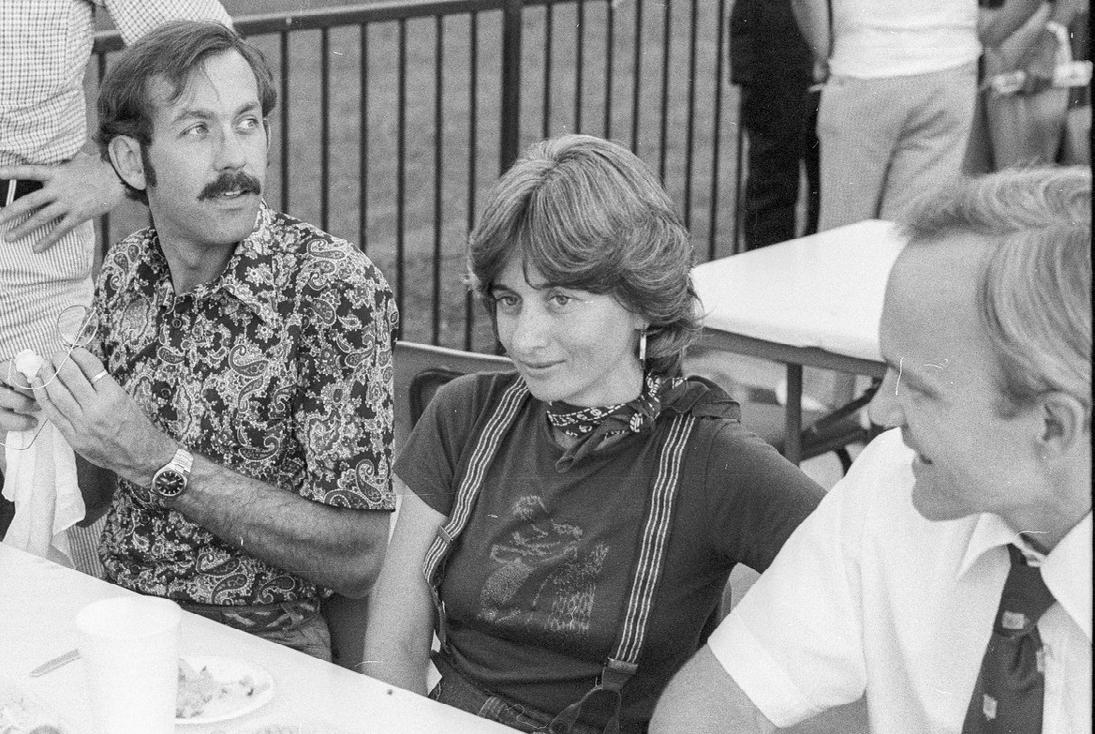

Diversity Summit Review | Do Something
(continued from page 23)
via race, ethnicity, ability, gender, sexual orientation, socioeconomic background, etc.—is devalued, attacked, or excluded. So, the question is does your organization practice valuing, uplifting, including, and engaging the voices of diverse people? Then evaluate whether your diversity ideas have manifested in the metrics – leadership promotions and placements, salary, and retention.
Lead from the Top – Shifting the culture of an organization, be it towards a more equitable and inclusive environment or otherwise, starts at the top. If you have formed a committee, is it filled with just diverse people or people with the power to make real change? Are diverse people bearing the burden of shifting the entire culture or is it the C-suite?
Fund the Change – Put your money and other resources where your values are. It takes money to change the culture. It takes money to recruit. It takes money to retain. It takes time—and time is our most valuable resource.
Fund your equity and inclusion efforts and do not let them fall by the wayside during the COVID-19 crisis. You will not only suffer in the short term by losing a plethora of perspectives, but you will suffer in the long term (remember that statistic about diverse businesses and profit margins).
Who Bears the Cost? – This is not a completely separate thought from “fund the change,” but as you are shifting the culture within your organization, ask yourself who bears the cost? Often, diverse people bear the burden of implementing initiatives. In doing so they make themselves vulnerable to backlash and even dismissal from their positions. People do not like change; therefore, those pushing and promoting change are subject to conscious and unconscious pushback from the command chain and colleagues.
Don’t Give Up – Vast swaths of the population were once prohibited from practicing law. Once permitted, it took

years to gain any significant number of practitioners from those groups. Even now, there are systemic barriers, though not written into law, that prevent many diverse people from practice or promotion. Nonetheless, looking at the options like leading from the top, funding the change, and not giving up.
Participants suggested several unique next steps to set the vision and shift the culture in the coming years. It would be a great oversight to omit the observation and statement of attendees that most summit attendees identified as diverse. Several seasoned attendees wondered why the issues faced were so similar to those in decades past. At the next Diversity Summit, attendees hope and expect to see firm and organization leaders who do not traditionally identify as diverse in attendance and engaged. In the coming months and years we, as a community, will wrestle with restructuring how, when, and where we practice law, how new lawyers are qualified and admitted to practice, and so many other new opportunities to rethink the practice in the face of the global pandemic. Now is the time for all members of the legal community to Do Something about the long-standing issue of an exclusive norm, and shift to a more diverse, equitable, and inclusive existence. We can Do Something, and it starts with you! n

P. DANIELLE NELLIS is a graduate of Spelman College and Boston University School of Law. Her legal career focuses on criminal law and diversity, equity, and inclusion. The Nashville native is happily married to Eric Insignares and they have one brilliant, inquisitive son. For more information visit pdanielle.com.
Members’ Quarantine Memories


Loved





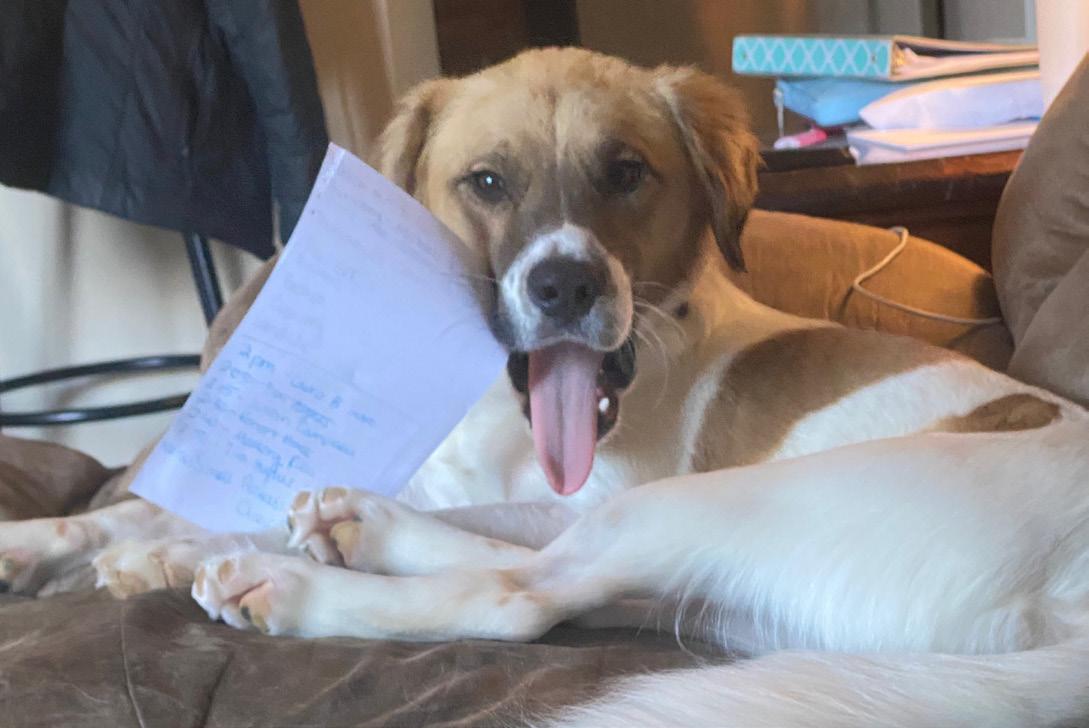
Hearsay | Honors & Awards, On the Move,
HONORS & AWARDS

The Mid-South Commercial Law Institute recently elected Stites & Harbison attorney Erika Barnes as a director of its 25 member Board of Directors. Barnes is a member of the firm in the Creditors’ Rights & Bankruptcy and Business Litigation Service Groups based in Nashville.
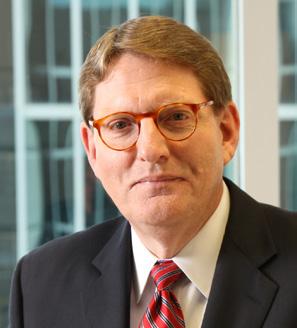
Charles W. “Chuck” Cagle, shareholder and chair of the Education Law and Government Relations Practice Group at Lewis Thomason, has been appointed as Tennessee representative and counsel to the Council of Administrators in Special Education (CASE). Cagle will assist CASE, a group representing special education directors nationwide, in its meetings with the US Senate committees concerning federal regulations and use of funds for the 2019-2021 school years.

Legal Aid Society of Middle Tennessee and the Cumberlands is pleased to announce that Lela M. Hollabaugh, the managing partner of Bradley’s Nashville office and general counsel to the NBA, will chair its 2020 Campaign for Equal Justice.

Randy Kinnard of Kinnard, Clayton & Beveridge was awarded the 2020 American Bar Association Pursuit of Jus-
tice Award for demonstrating outstanding merit and excelling in ensuring access to justice. Kinnard is a seasoned personal injury and medical malpractice attorney.
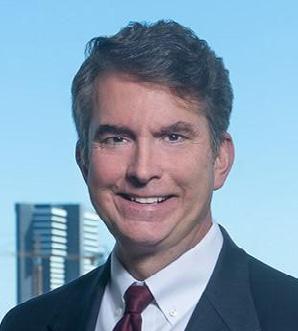
Patterson Intellectual Property Law is pleased to announce that shareholder Ed Lanquist has been ranked as a Band 1 attorney in Intellectual Property Law for the state of Tennessee by Chambers and Partners USA 2020. Lanquist focuses his practice on patent, trademark, and copyright litigation, trademark prosecution, intellectual property counseling, and technology law.

The Honorable Aleta A. Trauger, US District Court for the Middle District of Tennessee, has been selected to receive the 2020 American Inns of Court Professionalism Award in the Sixth Circuit. The American Inns of Court Professionalism Awards are awarded each year, in participating federal circuits, to a lawyer or judge whose life and practice display sterling character and unquestioned integrity, coupled with ongoing dedication to the highest standards of the legal profession and the rule of law.
ON THE MOVE
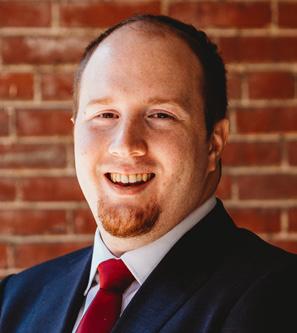
Tune, Entrekin & White is pleased to announce the recent addition of Samuel J. Blanton as an associate attorney. Prior to joining the firm, Blanton completed clerkships with Judge Glen A. Huff of the
Virginia Court of Appeals and Judge W. Neal McBrayer of the Tennessee Court of Appeals. He will concentrate his practice on property, contracts, trademarks, copyrights, and civil litigation.

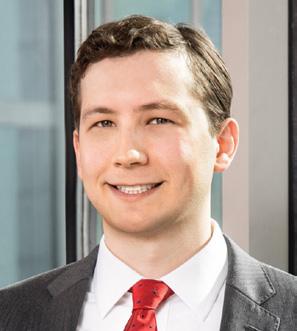
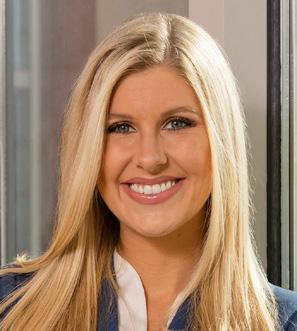
George S. Scoville, III, Davidson Lentz, and Kaitlin White have joined as associates in Lewis Thomason’s Nashville office. Scoville primarily practices in the firm’s product liability group. Lentz and White practice primarily in the transportation practice group.
FIRM NEWS
Bradley is pleased to announce that it has awarded a 2020 Diversity Scholarship to law student Bria Smith from Vanderbilt University Law School. Smith will clerk in the firm’s Nashville Office.
Dickinson Wright has received ISO/ IEC 27701:2019 certification, becoming one of the first law firms in the world to achieve the privacy management certification. The ISO/IEC 27701 standard provides a framework for organizations to safeguard personally identifiable information.
The firm Rogers, Kamm & Shea is now Rogers, Shea & Spano, in recognition of Lawrence Kamm taking Of Counsel status and George Spanos having become a partner last year. n
Nashville Legal Pioneers: Ladies in the Law



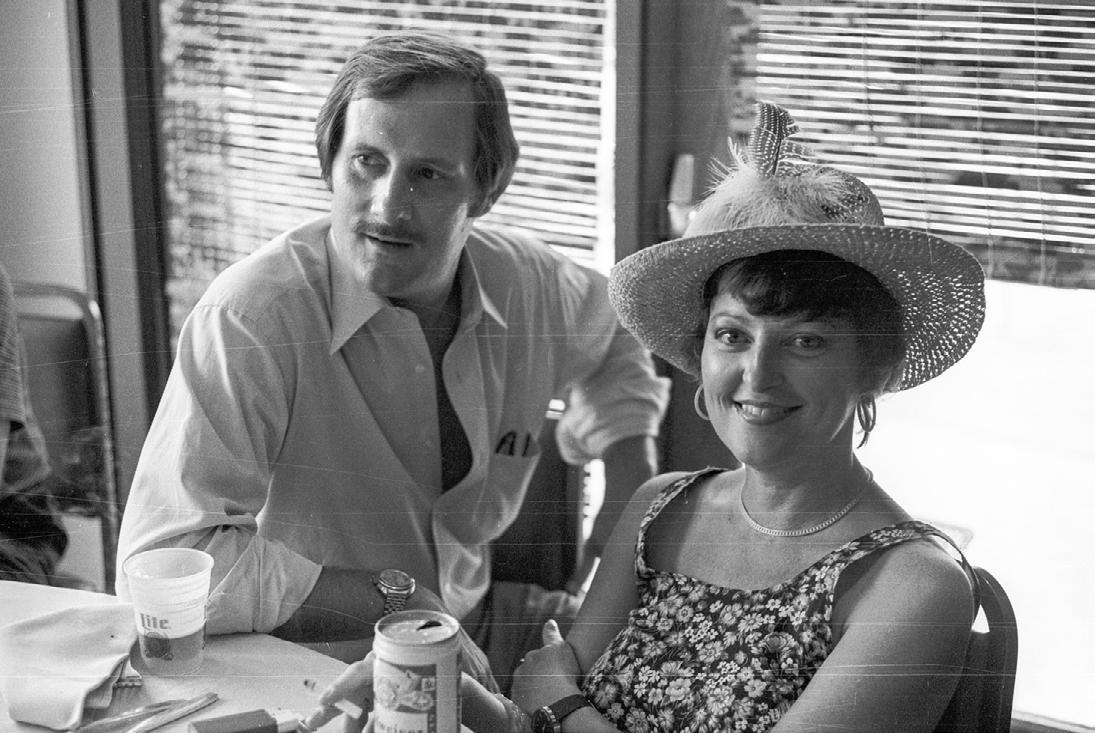


Thank You for Your Membership!
The NBA Premier Membership recognizes those members who desire to demonstrate the utmost in commitment and support to NBA programs and services. Contact Vicki.Shoulders@nashvillebar.org for information on how to become a Premier Member.
PREMIER MEMBERS
Gail Vaughn Ashworth
Laura Baker
William Ball
Carson Beck
Daniel Berexa
Michael Berman
Mark Beveridge
Hon. Joe Binkley
Hon. Melissa Blackburn
Charles Bone
C. Dewey Branstetter
Hon. Joe Brown
Kenny Byrd
Chris Cardwell
Loy Carney
Kay Caudle
Mark Chalos
Will Cheek
Christopher Coleman
Hon. Patsy Cottrell
John Day
Joy Day
Jackie Dixon
Blair Durham
Keith Frazier
Richard Green
John Griffin
Bill Harbison
Aubrey Harwell
Trey Harwell
Lisa Helton
Jamie Hollin
Paul Housch
Jan Jennings
Andrew Kaufman
Jordan Keller
John Kitch
Dean Bill Koch
Irwin Kuhn
Ed Lanquist
Tom Lawless
Will Lewis
Wendy Longmire
Christina Lopez
Hon. Randal Mashburn
Sam McAllester
Hon. Amanda McClendon
Nicholas McGregor
Bob Mendes
Margaret Moore
Marlene Moses
Hon. Patricia Head Moskal
Phil Newman
Marc Overlock
Matt Painter
David Parsons
Gregory Pease
Andrea Perry
Tracy Powell
Joseph Presley
David Raybin
Sara Reynolds
Nathan Ridley
Christopher Sabis
Carolyn Schott
Joe Shelton
Kimberly Silvus
Martin Sir
Ron Small
Eric Smith
Laura Smith
Saul Solomon
John Spragens
Joycelyn Stevenson
Mike Stewart
Gerard Stranch
Jim Stranch
Hon. Aleta Trauger
Howard Vogel
Michael Wall
Liz Washko
Jim Weatherly
Tom White
Tom Wiseman
Talley Wood
Sheree Wright
Ed Yarbrough
Hon. Bill Young
Stephen Young
Gulam Zade
Stephen Zralek
The Affinity Program
EXCLUSIVE MEMBER SAVINGS ON LOCAL PRODUCTS & SERVICES!
The Affinity Program is made up of partnerships that foster a mutually beneficial relationship between the NBA, our members, and participating local businesses. To learn more, view member discounts, and get your NBA Membership card to present to vendors to receive your discount, visit NashvilleBar.org/AffinityProgram or email Vicki.Shoulders@nashvillebar.org today!


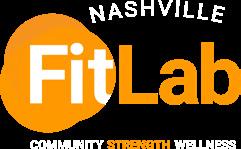














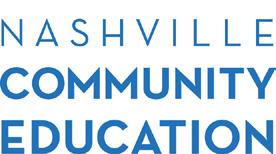




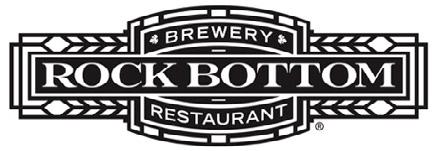











Thank you for supporting your local bar association!
The Nashville Bar Association 100% Club is a special category of membership that demonstrates a commitment to the legal profession and our community from legal organizations with more than three attorneys that have 100% of their Nashville attorneys as members of the NBA. To become part of NBA’s 100% Club, contact Vicki.Shoulders@nashvillebar.org and support your local bar association today!
Anderson & Reynolds
Baker Donelson
Bone McAllester Norton
Bradley
Brewer, Krause, Brooks & Chastain
Burr & Forman
Butler Snow
Cameron Worley
Cole Law Group
Cornelius & Collins
Dickinson Wright
Dodson Parker Behm & Capparella
Evans, Jones & Reynolds
Fisher & Phillips
Frazer
Frost Brown Todd
Grissim & Hodges
GSRM Law
Hall Booth Smith
Healthcare Realty Trust, Inc.
Holton & Mayberry
Keller, Turner, Andrews & Ghanem
Kinnard, Clayton & Beveridge
Latitude
Law Offices of John Day
LBMC
Leader, Bulso & Nolan
Legal Aid Society
Leitner, Williams, Dooley & Napolitan
Lewis Thomason
Lieff, Cabraser, Heimann & Bernstein
Lindsey + Amonette + Nemer
Martin Heller Potempa & Sheppard
Matt Hardin Law
McCarter & Beauchamp
Meridian Law
Morgan & Akins
MTR Family Law
Nashville Electric Service
Neal & Harwell
Nelson, Mullins, Riley & Scarborough
North, Pursell & Ramos
Ogletree Deakins
Ortale Kelley Law Firm
Parker, Lawrence, Cantrell & Smith
Patterson Intellectual Property Law
Rainey, Kizer, Reviere & Bell
Raybin & Weissman
Riggs Davie
Riley, Warnock & Jacobson
Robinson, Reagan & Young
Rogers, Shea & Spanos
Rudy Winstead Turner
Schulman, LeRoy & Bennett
Shackelford, Bowen, McKinley & Norton
Sherrard Roe Voigt & Harbison
Sims|Funk
Smith Cashion & Orr
Smythe Huff & Murphy
Spicer Rudstrom
Stites & Harbison
Sutherland & Belk
Taylor, Pigue, Marchetti & Blair
Venick, Kuhn, Byassee, Austin & Rosen
Warner Music Group
Watkins & McNeilly
Weatherly, McNally & Dixon
White & Reasor
Wiseman Ashworth Law Group
Wyatt, Tarrant & Combs

The easiest way to accept credit card and eCheck payments online.
Powerful Technology
Developed specifically for the legal industry to ensure comprehensive security and trust account compliance
Powering Law Firms
Plugs into law firms’ existing workflows to drive cash flow, reduce collections, and make it easy for clients to pay
Powering Integrations
The payment technology behind the legal industry’s most popular practice management tools
Powered by an Unrivaled Track Record
15 years of experience and the only payment technology vetted and approved by 110+ state, local, and specialty bars as well as the ABA


TAKACS MCGINNIS ELDER CARE LAW WELCOMES
CHRIS JOHNSON
PARTNER

When the long-term illness or disability of an elderly family member threatens to disrupt your clients’ financial, legal, and emotional well-being, you don’t call just anyone. You call the best. That’s why we’re excited to announce that Attorney Chris Johnson is now a partner in the firm. Chris Johnson came to Takacs McGinnis Elder Care Law, PLLC with 19 years of legal and military experience, plus a stint working as an elder law attorney after leaving the military. Since joining Takacs McGinnis Elder Care Law, PLLC in 2018, Chris Johnson has been providing legal expertise on a wide range of client issues with a focus on estate planning, VA benefits, and Life Care Planning. He is also a VA Accredited attorney.
Point your clients in the right direction with a referral to Takacs McGinnis Elder Care Law, PLLC. For more than 25 years, we have been helping families protect assets, find high-quality care, and navigate the long-term care system.
We can help your clients, too. Give us a call today.
(615) 824-2571




www.tn-elderlaw.com 201 Walton Ferry Road Hendersonville, TN 37075
info@tn-elderlaw.com



